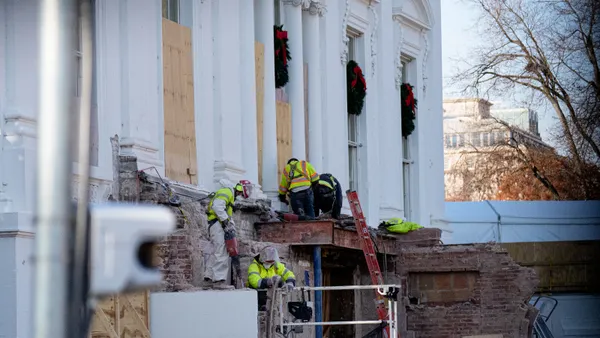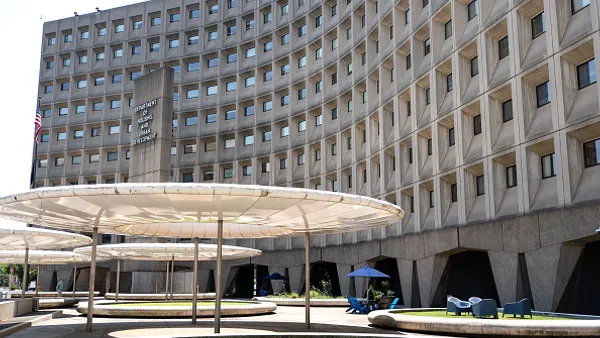Dive Brief:
- During a hearing for civil lawsuits filed in connection with the March 15, 2018, Florida International University (FIU) bridge collapse in Miami, lawyers presented documents suggesting that project engineers said cracks in the structure posed no safety concern just hours before the collapse, NBC 6 Miami reported. Six people — those in vehicles below and one worker — were killed when the bridge fell.
- FIGG Bridge Engineers personnel, in response to concerns about the growing cracks, made a presentation to the Florida DOT, engineers from FIU, general contractor Magnum Construction Management (MCM) and others. FIGG, according to minutes from a two-hour meeting, reportedly said the cracks were not a safety issue, that it was safe to let traffic flow under the bridge and that no shoring was needed under the bridge during repairs.
- FIGG has disputed the accuracy of the minutes and provided its own version to the National Transportation Safety Board, which is investigating the incident. Major points of contention include who said it was safe for traffic to flow during re-tensioning of the truss and whether the repair design had been subjected to a peer review.
Dive Insight:
According to voicemail records obtained by The Miami Herald in the days after the collapse, Denney Pate, a FIGG employee that was the project’s engineer of record, left a message for the FDOT on March 13 (three days before the collapse) stating that cracks in the bridge, which was built offsite, were not a safety issue. The cracks were spotted before installation and reportedly grew in size after the structure was transported over to the FIU site and put in place.
The NTSB still has not issued its final determination as to the cause of the collapse, but a preliminary report found that design errors likely played a role. The agency said there was an overestimation of capacity of a critical section of the bridge and a seeming underestimation of the load that section would be subjected to.
There are reportedly more than 20 defendants in lawsuits filed by the families of those killed or by those injured in the collapse, and legal proceedings are taking their toll. General contractor MCM filed for bankruptcy protection last month.
In court filings, the company said it lost its Florida DOT certifications and about $200 million in potential revenue from future projects after the collapse. The bankruptcy filing stays collection actions related to civil lawsuits for the time being, but the company said it will address the claims and that its bankruptcy "is not an attempt to avoid any responsibility that might be assigned to the company for the collapse of the bridge."












